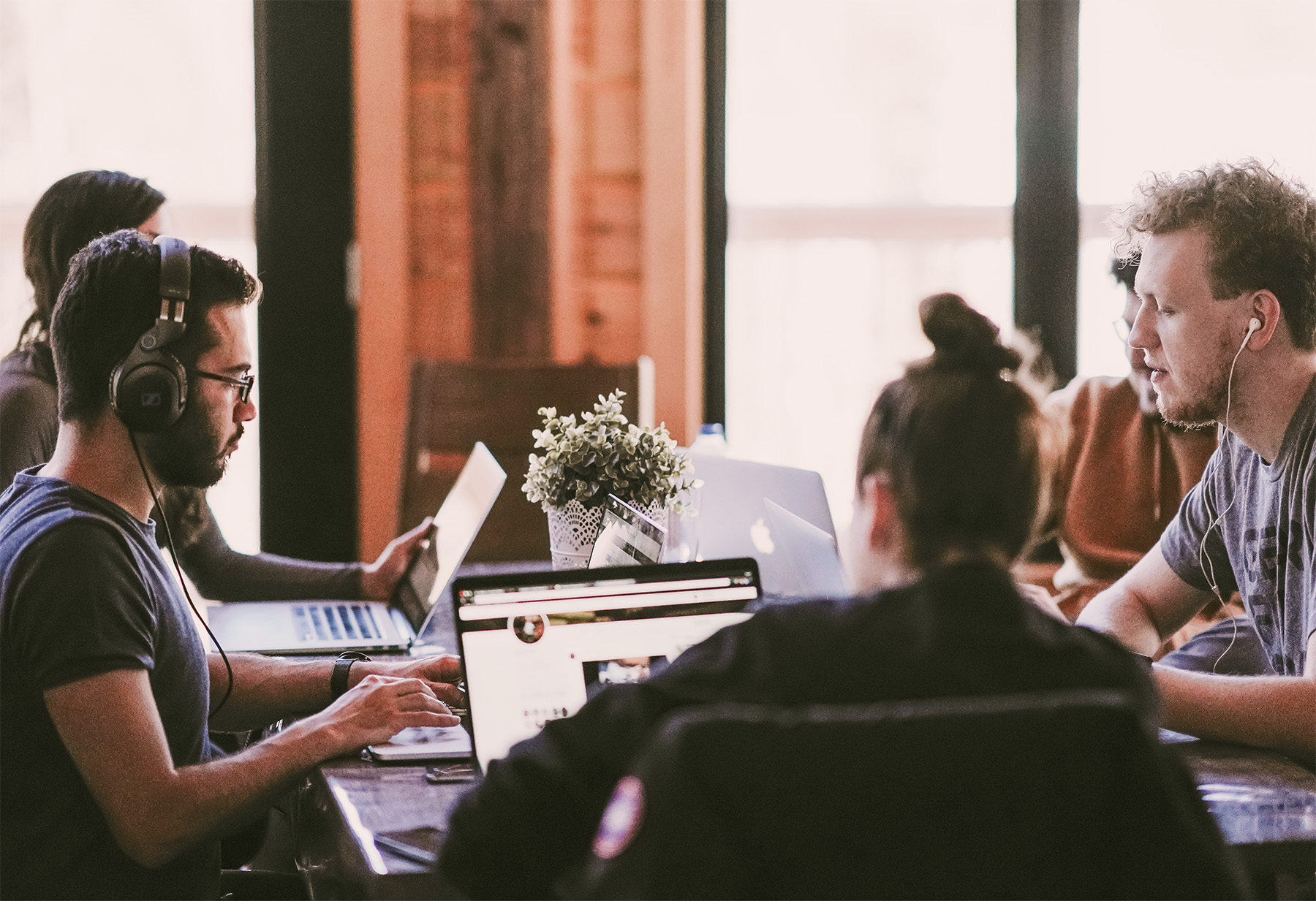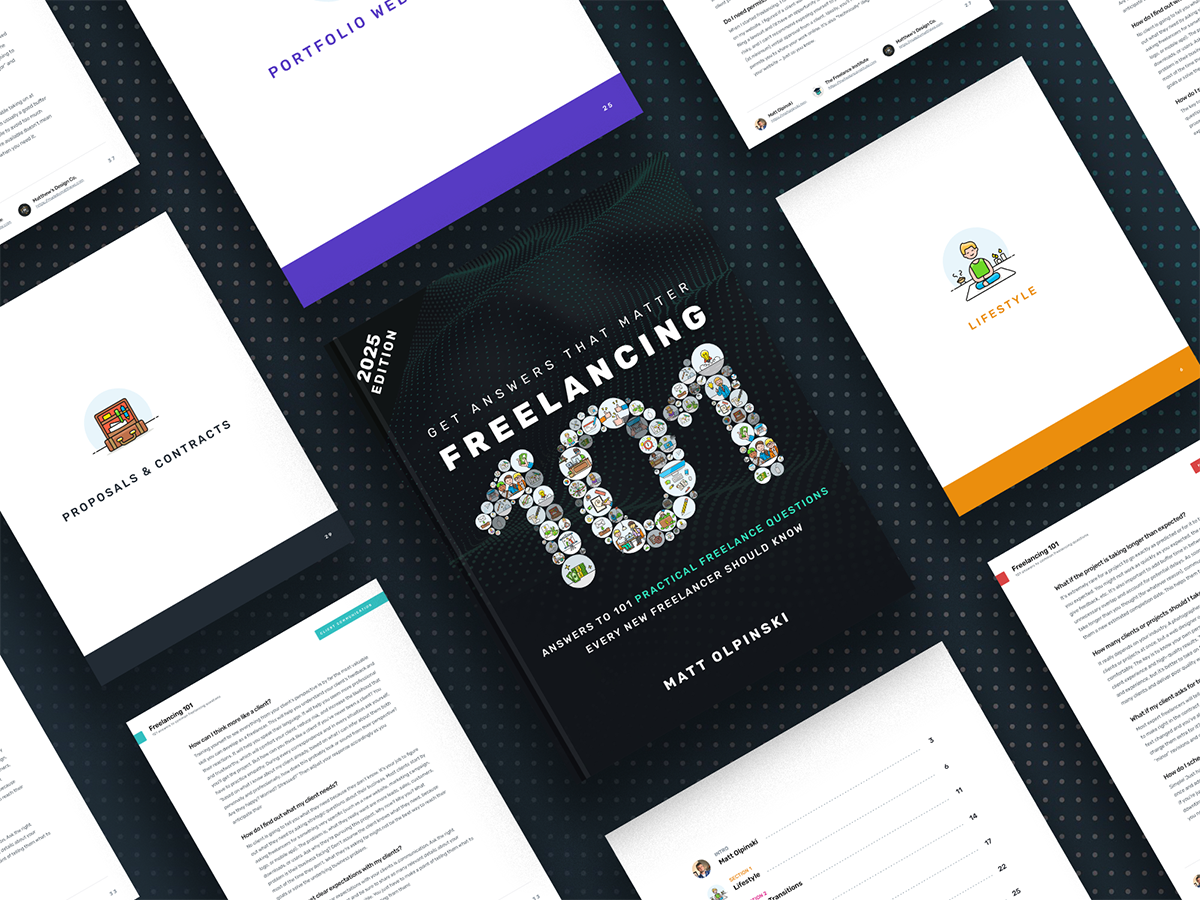The Subtle Benefits of Being Around Others While You Work
Learn how freelancers can beat loneliness and burnout by leveraging coworking spaces, networking events, and alternative work spots like cafés, libraries, and parks to boost productivity and work–life balance.


New to freelancing? Start here with my FREE 100+ tip guide.
Price your services, find better clients, and avoid beginner mistakes all in one clear, practical book.
It’s true that being a freelancer gives you the freedom that most office workers yearn for. Once you’ve experienced the freelance life, it’s hard to imagine giving it up. But there are some unspoken truths about working solo versus working alongside others. According to Gallup’s State of the Global Workplace report, 25% of remote employees experience daily loneliness compared to 16% of onsite employees.
Working Alone Can Lead to Burnout
Many freelancers enjoy a home office setup they’ve refined over time to maximize focus and productivity. During deep work sessions, these solo environments can be ideal. But once the major tasks are ticked off, a different challenge often kicks in: the slow creep of mental exhaustion.
Freelancing demands a lot of self-reliance. While that independence is part of the appeal, it can also make it harder to stay motivated and energized. Everyone needs a change of scenery now and then — but working from home often lacks the variety and human interaction that help break up the day.
The Appeal of Co-working Spaces
Coworking spaces are shared offices designed to help freelancers connect, collaborate, and work more efficiently. They offer structure, routine, and access to a creative community — without the formality of a traditional workplace.
For introverts, that might sound intimidating. But most coworking spaces let you control how much you interact. You can stay in your own zone or join group events and chats as you choose. In fact, a survey by TeamStage found that 89% of independent workers felt happier after joining a coworking space.
Built-In Social Events
Freelancers deal with the same pressures as office workers — including burnout and social isolation. That’s why many coworking spaces host social events like free breakfasts, coffee breaks, or after-work gatherings.
In our experience, these events typically happen monthly (and sometimes weekly in larger spaces). They’re usually free to attend for members and offer an easy way to meet people without the pressure of formal networking.
Networking and New Opportunities
One of the hardest parts of freelancing is finding clients and maintaining a steady stream of income. Being surrounded by people who could become clients or refer you to one can make that process easier.
Most coworking spaces attract a wide variety of freelancers — writers, developers, consultants, designers, and more. Just by showing up regularly, you might become the go-to recommendation when someone needs help in your area of expertise. Some spaces also host official networking events to help members connect with potential clients.
Boosting Productivity and Work-Life Balance
Staying productive can be a challenge, especially when distractions pile up at home. Working from the same space you relax in can blur the lines between work and life, making it harder to switch off at the end of the day.
Having a desk outside the house can make it easier to establish boundaries, stick to a routine, and stay focused. The structure of a coworking space can help you get into the zone faster — and get more done.
Of course, commuting might be a bit of a shock after months (or years) of working from home. But for many freelancers, the tradeoff is worth it.
Tip: If you’re feeling stuck, ask nearby coworkers for feedback or help on a specific problem — many will be happy to lend a hand.
Desk Options: Hot or Fixed?
Coworking spaces usually offer two types of seating arrangements:
- Hot desks let you grab any available spot. They’re usually the cheaper option and encourage more spontaneous conversations and flexibility.
- Fixed desks give you a permanent setup. These are great for people who need a specific monitor, setup, or just like having the same seat every day. They cost a bit more but offer consistency and the chance to form stronger relationships with your neighbors.
Both options are affordable, with only slight price differences depending on the space.
Alternatives to Coworking Spaces
But coworking isn’t the only way to work around others.
If you want a change of scenery without committing to a shared office, coffee shops can be a great alternative. Freelancers often work from big chains or cozy local cafés because they offer soft lighting, comfortable seating, and free wifi — plus the added energy of being around others.
You might also have access to public spaces that are free and work-friendly. At your local library, you’ll likely need a library card — but that’s almost always free. Libraries offer a quiet setting, reliable wifi, and helpful staff, making them perfect for deep focus sessions without being cooped up at home.
Public parks are another underrated option. While not ideal year-round unless you live in a warm climate, parks offer fresh air, natural light, and a mental reset. Just note that wifi can be unreliable, so you may want to work offline or hotspot from your phone.
Wrapping Up
At the end of the day, freelancing isn’t about fitting into one mold — it’s about designing your own rhythm and your own version of success. The beauty of it lies in the freedom to experiment. But that freedom works best when it’s balanced with a healthy work/life routine.
Working around others, even occasionally, can be a quiet game changer. A small change in your environment can lead to big gains in productivity, wellbeing, and new opportunities. So if things are starting to feel a bit stale at home, don’t underestimate the power of being around others.





